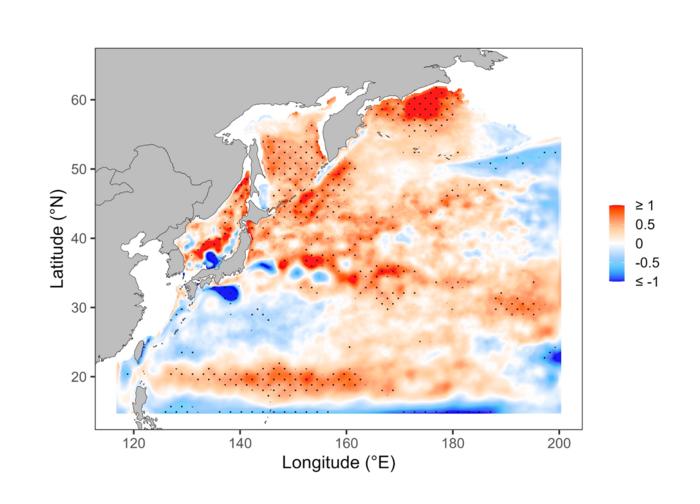Global warming increased competition for food in the 2010s, leading to decreased fish weight in important fishing area.
Fish weight in the western North Pacific Ocean dipped in the 2010s due to warmer water limiting food supplies, according to a new study at the University of Tokyo. Researchers analyzed the individual weight and overall biomass of 13 species of fish. In the 1980s and 2010s, the fish were lighter. They attributed the first period of weight loss to greater numbers of Japanese sardine, which increased competition with other species for food. During the 2010s, while the number of Japanese sardine and chub mackerel moderately increased, the effect of climate change warming the ocean appears to have resulted in more competition for food, as cooler, nutrient-dense water could not easily rise to the surface. These results have implications for fisheries and policymakers trying to manage ocean resources under future climate change scenarios.
Whether it’s sushi, takoyaki (traditional octopus pancake balls) or grilled mackerel, seafood is an iconic and important part of Japanese cuisine. Japan’s seafood self-sufficiency has, however, been gradually declining for several decades. Local fisheries face multiple challenges from reduced sales and lower prices, labor shortages, changing consumer preferences and soaring costs. But perhaps one of the biggest threats comes from global warming.
Read more: eurekalert.org
Photo: eurekalert.org


Leave a Reply